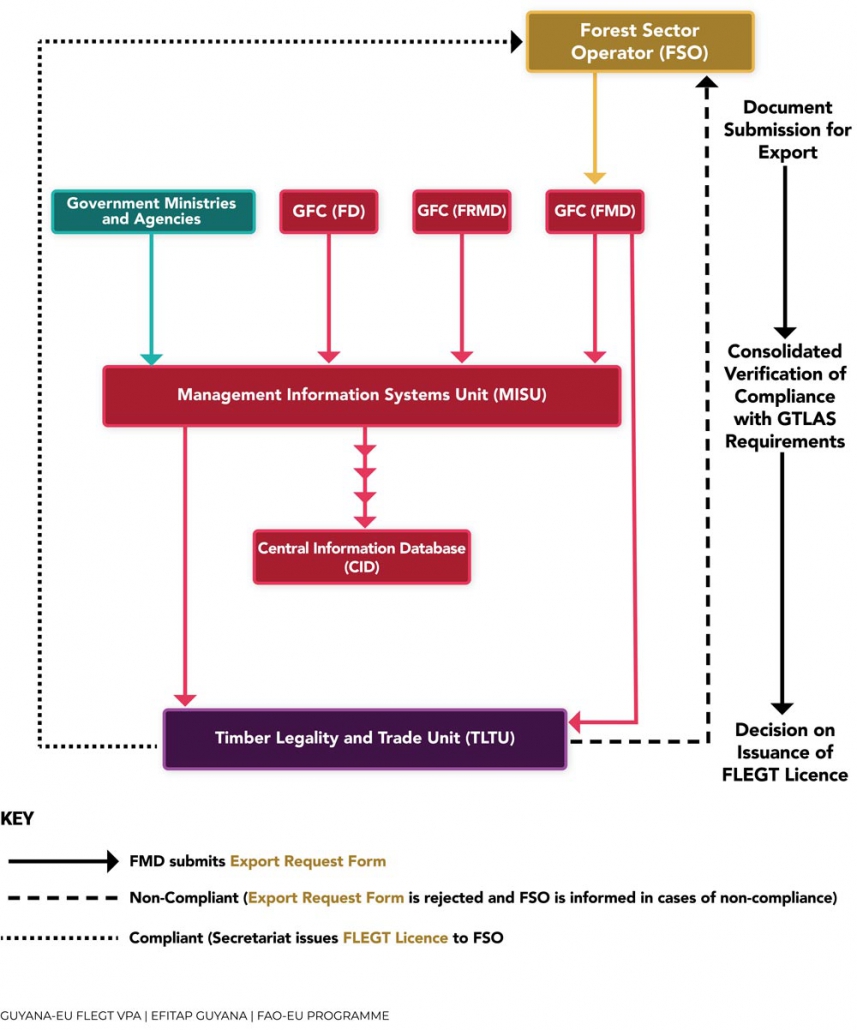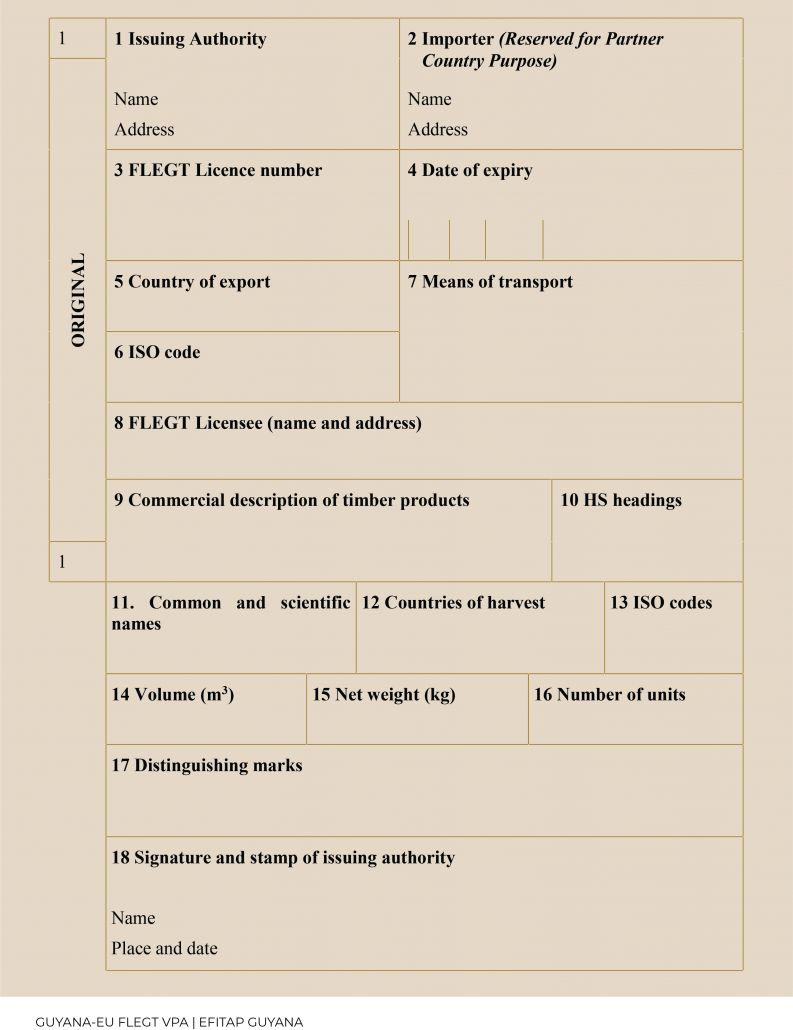FLEGT Licence
Forest Sector Operators (FSOs) must meet the compliance requirements using their respective verifiers and indicators before submitting their documents and being considered for a FLEGT Licence.
Summary of Licencing Process for Exports to the EU
Steps
Action
1. Document Submission for Export
- FSOs submits the relevant documents to Government ministries and agencies to comply with the relevant verifiers and indicators in the LD.
2. Compliance Checks
- GFC, the ministries, and agencies will then verify the FSO’s compliance with the indicators using the data and information submitted by the FSO and collected during inspections.
- This data and information are then forwarded to the Management Information System Unit (MISU) to include the FSO’s electronic data file in the Central Information Database (CID).
- The Timber Legality and Trade Unit (TLTU) checks CID to determine the FSO’s compliance with all legal requirements of the GTLAS.
3. Issuance of FLEGT Licence
- The Secretariat will forward information relating to the issuance status of a FLEGT licence and Export Certificate to the MISU for archiving in the CID.
- Based on the information in the CID, once the FSO is deemed compliant with the GTLAS, the timber products are allowed to enter the export market.
Detailed Licencing Process for Exports to the EU
Steps
Action
1. Forest Produce Application
- All FSOs exporting timber and timber products from Guyana are required by law to complete an Application for Export of Forest Produce Form.
- The exporter submits the Application or Export of Forest Produce Form either directly to the GFC Headquarters or through a GFC Forest Station.
- The GFC checks the information on the Export of Forest Produce Form and verifies that the FSO meets the requirements in Annex II relating to the Legality Definition and the WTS for supply chain controls.
2. Timber Marketing Certificate
- The GFC approves the exporter to apply for a Timber Marketing Certificate.
- The exporter engages a Timber Marketing Certificate (TMC) GFC-licenced independent grader to grade all the timber and timber products for export. The grader checks for quality per the Guyana Grading Rules for Hardwood Timber.
- If the products meet the requirements of the Guyana Grading Rules for Hardwood Timber, the GFC-licenced independent grader brands the graded timber and timber products intended for export. They then complete the relevant sections of the Timber Marketing Certificate.
- The GFC’s Grading Inspector then checks and verifies the timber and timber products graded and branded by the GFC-licenced independent grader, based on 100 % verification of lumber.
- The GFC’s Grading Inspector affixes their brand to all graded timber and timber products to confirm that the products have met all the necessary quality standards of the Guyana Grading Rules for Hardwood Timber.
- The GFC’s Grading Inspector completes the relevant sections of the Timber Marketing Certificate (TMC) and issues it to the exporter.
3. Export Certificate
- If the exporter applies for an Export Certificate, the exporter will complete the Customs Declaration Form C72 required by Guyana’s Customs and Trade Administration (GCTA), accompanied by the following documents:
1. An application for Export of Forest Produce Form
2. A Commercial Invoice
3. CARICOM Certificate of Origin (required for export to only CARICOM countries).
4. FLEGT Licence
- If the exporter applies for a FLEGT License (for export to an EU market, they will complete the GFC’s FLEGT License Application Form.
- The GFC validates through the FSO’s electronic data file that the FSO and the consignment of timber and timber products have met all the GTLAS requirements.
- All consignment of timber products given the final approval by the TLTU/Secretariat for export are accompanied by:
1. Two (2) copies of Customs Declaration Form C72, signed, stamped and sealed by the GFC
2. An Export Certificate
3. CARICOM Certificate of Origin (required for export to only CARICOM countries). - The exporter submits the documents listed above as a package to the GCTA and completes all GCTA statutory requirements.
- The GCTA informs the TLTU by email that the exporter has met all GCTA statutory requirements.
- The TLTU issues the exporter with either a FLEGT License (for EU markets) or an Export Certificate (for non-EU markets).



